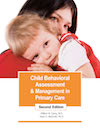Teaming up to Tame a Preschooler (continue)
The school assigned an aide to Benjamin to 'shadow' him in the classroom. The aide's mission was to try to intervene early and calm him down, when difficulties arose and work with him to find better ways to respond when he was feeling upset. The aide's time would be tapered off as Benjamin's behavior improved. The team and the aide met about once a month over the course of about six months to evaluate Benjamin's progress, discuss how strategies were working, and determine new approaches. Referrals were also made for supportive community resources, such as a support group for Angie where she worked on personal issues and developed tools to handle her own frustrations. Angie and Benjamin were also given a referral to see me.
Taking the Parents into Account
Ideally my first observation of a child occurs before I meet him or her, as an anonymous classroom visitor. During my visit, I could see that Benjamin was bright, active and intense. Happy or angry, he was loud and dramatic. Fast to anger, the fierceness of his rage was etched dramatically in his face, and I could see clearly why other children were afraid of him.
Next I like to meet alone with the parents of young children like Benjamin. I want to hear candidly about stress levels and concerns, and don't want to risk having a parent blurt out in front of the child something like, "If he's like this already at 4, he's going to end up in jail for sure." These meetings allow me to gather additional information about the child's temperament, the family situation, and parent's concerns. I also give them feedback from my classroom observation, if that has already occurred, and discuss what kind of interventions might be the most helpful.
In these initial meetings, I used to load parents up with suggestions like techniques for being firm that minimize head-on confrontations-because I could see how desperate they were for something concrete to do right away. Now I'm more likely to keep my initial suggestions to a minimum, telling them, for instance, that they should prioritize their concerns.
Parents, especially single parents, are often already stressed and overwhelmed when I see them. I make a point of starting by encouraging them to take care of themselves, telling them that they can't be really good parents or take in new information while running on empty. I give them a handout of simple self-care tips. Many of the suggestions are quite simple-rent a funny movie, write in a journal for stress relief, and drink coffee or tea out of a special mug to create a simple ritual-but parents often like the list so much they carry it with them or post it in their bedrooms. When I first meet them, they are worried I will think they are incompetent parents, and are both relieved and grateful to know I'm concerned about as them well as their child.












